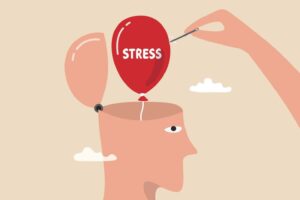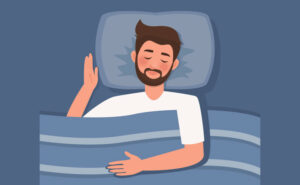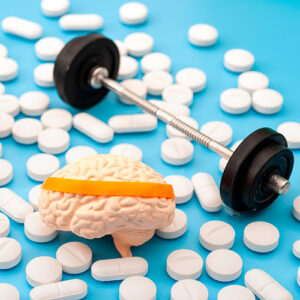There are many reasons why you should exercise if you’re depressed. As part of a holistic approach to managing depression, exercise is widely recognized as being one of the most effective interventions. Here a few important reasons why that is.

1. Release of Endorphins: Exercise stimulates the release of endorphins. These are chemicals in the brain that act as natural painkillers and mood elevators. Endorphins produce feelings of happiness and euphoria, which can counteract symptoms of depression.

2. Reduction of Stress: Physical activity helps reduce cortisol levels, the body’s stress hormone. Exercise, for as little as 30 minutes, eases the anxiety and tension that often go with depression.

3. Improvement in Sleep: Regular exercise can promote better sleep patterns. A lack of sleep is commonly associated with depression. Improving your quality and duration of sleep can have a big impact on your mood and well-being.

4. Increase in Self-esteem: Engaging in regular exercise can improve self-esteem and self-confidence. When people set and achieve fitness goals, they may feel pride and accomplishment. Self-esteem can counteract depression-related feelings of worthlessness or inadequacy.
5. Distraction and Social Interaction: Exercise provides a healthy distraction from negative thoughts. Also, participating in group exercise classes or team sports can foster social interaction and support. This also can be beneficial for combating feelings of isolation and loneliness.

6. Brain Health: Exercise promotes the growth of new brain cells and enhances brain plasticity, particularly in regions associated with mood regulation. This can lead to long-term improvements in cognitive function and emotional resilience.
7. Routine and Structure: Establishing a regular exercise routine can provide structure and stability to daily life, which is important for individuals struggling with depression. Having a consistent schedule can help regulate mood and provide a sense of purpose.

8. Antidepressant Effects Comparable to Medication: Studies have shown that exercise can be as effective as antidepressant medication in reducing symptoms of depression. These cases particularly happened for mild to moderate cases.

![]()
![]() 9. Long-term Benefits: Unlike some medical treatments for depression that may have limited effectiveness or undesirable side effects, exercise offers long-term benefits for both physical and mental health. Incorporating regular physical activity into one’s lifestyle can lead to sustained improvements in mood and overall quality of life.
9. Long-term Benefits: Unlike some medical treatments for depression that may have limited effectiveness or undesirable side effects, exercise offers long-term benefits for both physical and mental health. Incorporating regular physical activity into one’s lifestyle can lead to sustained improvements in mood and overall quality of life.
While exercise can be a valuable tool for depression, it’s not a substitute for professional treatment. If you are experiencing depression should seek support from mental health professionals and consider a comprehensive treatment plan that may include therapy and other lifestyle modifications.







